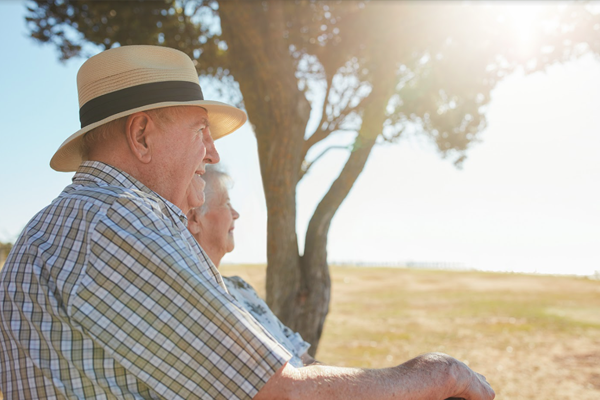Heat Exhaustion: When Do You Start to Overheat?
Seniors in retirement communities Centennial don’t realize how fast the human body can cross over the line into hazardous territory. Thirst isn’t a good indicator as we age, and the feeling of warmth doesn’t hit you like it used to because circulation is slower. But there are body signals that rise gradually or change unexpectedly before temperature reaches a feverish level.
Awareness of the early stages of overheating can help you prevent the progression to heat exhaustion or even heat stroke.
Notice breathing first. It’s a common reaction to notice breathing changes if you’ve been walking briskly or doing yard work. But if your breaths become more rapid or shallow after light exertion, stop, seek shade, and drink cool water. Mild hyperventilation is the body cooling itself through the lungs.
Skin is a good indicator, too. Hot cheeks or a warm neck without sweat production are signs of an increasing core temperature. Pale or clammy skin with or without profuse sweating suggests cooling mechanisms are being overcome.Either extreme calls for a break under a fan indoors.
Cramps in the hands or calf muscles are the classic warning before major problems.
Dehydration causes cramping by stripping the body of electrolytes through sweat. Sodium and potassium are critical electrolytes. In retirement home Centennial you can replenish them quickly with a sports drink or even broth. Persistent or unexplained cramping needs medical attention.
A minor headache is easily attributed to dehydration, but it can also be a subtle overheating warning. Combine a headache with dizziness or the sensation of the room spinning, and it’s time to cool off. Sit down with your feet propped on a stool and apply a cold compress to the back of the neck while you sip fluids.
Nausea is a less obvious symptom. Heat causes blood to shunt away from the stomach, so gastric emptying slows.Queasiness can occur after gardening or even a walk, and the body is sending a message that it’s time to take a rest.
Changes in mood or mental clarity are last signs. Hot flashes and trouble concentrating may be early symptoms that someone is overheating before body temperature is affected. Keep a short list: breathing, skin, muscles, head, stomach, and mood. If you notice two or more changes, it’s time to take a break from the heat.
Prevention for those in senior living Centennial is better than a cure: stay hydrated by sipping fluids all day long, wear lightweight clothing, and avoid outdoor activities when the sun is up. Recognize your own baseline so you notice changes.
